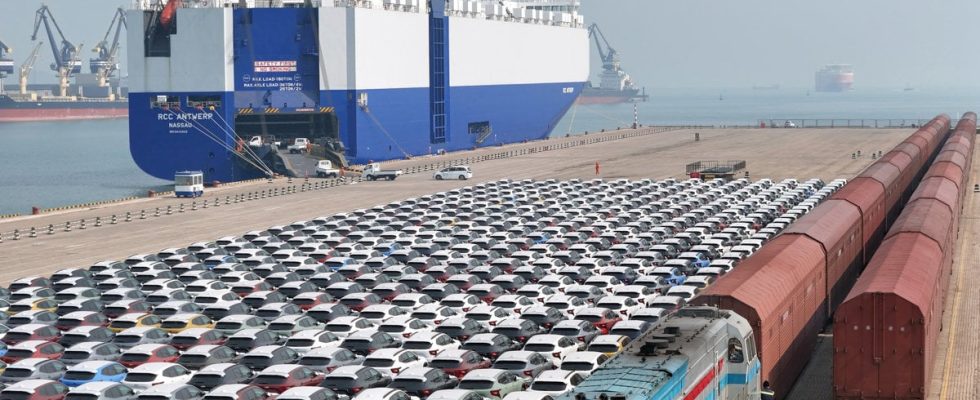However, the supply of Chinese cars exceeds the demand, something that is now starting to happen in various European ports.
The new electric car is illegal – now the manufacturer backs down
Own ship
The RORO vessel is named Explorer No.1 and is intended for export to Europe. The ship can transport up to 7,000 vehicles.
Now, however, there are reports indicating that some gravel seems to have ended up in the machinery.
Thousands of imported vehicles are currently stored in several European ports, the majority of them from China.
Several car manufacturers have rented large areas in the ports for the cars that have no customers yet. Logistics companies also rent additional parking spaces outside the ports.
Fix the correct tire pressure on the car – that’s how you do it
Record occupancy
– This situation currently affects all European ports where large volumes of vehicles arrive, Gert Ickx, spokesman for the management of the Belgian ports of Antwerp and Zeebrugge, told Automobile Week.
The port authority did not provide exact figures, but the port is currently occupied with significantly more vehicles than in 2020 and 2021, according to Ickx.
The problem has been compounded by several adverse effects, Ickx said. – There is a lack of capacity for car transport trucks and there are too few truck drivers, he said.
The Mini Countryman is now available as an electric car – we test drive it in Portugal
Weak sales
In addition, weak new car sales in Europe are also causing increased storage needs. The fact that several car companies have chosen to sell directly to the customer instead of through dealers also contributes to the congestion.
– Some brands now sell directly to the customer and they leave the cars in the ports for longer instead of transporting them to the dealers, said Ickx.
Wolfgang Goebel, president of the European Association of Finished Vehicle Logisticians (ECG), said the ports are full but added that this is not an entirely new phenomenon.
News from Tesla – Sweden’s best-selling electric car gets more range
Terminated subsidies
– The ports have been overcrowded for a long time, said Göbel, who is also a member of the board of the Mosolf Group, one of Germany’s largest logistics providers that carries out more than three million vehicle transports annually. The group is also active in Zeebrugge.
– We have a weak market, which leads to few outflows. Imported Chinese vehicles are only part of this.
The German government’s decision to end electric vehicle subsidies is another reason why electric vehicles are staying longer in ports. – This affects imported electric vehicles from all brands, said Göbel.
It undeniably seems that it is a slightly problematic situation that has arisen in the ports of Europe. We’ll see how it develops in the future, but so far the Chinese manufacturers seem to be having a little trouble getting the ball rolling with enough speed to not build up large inventories.
We test the new Tesla Model 3 – the world’s best electric car?
